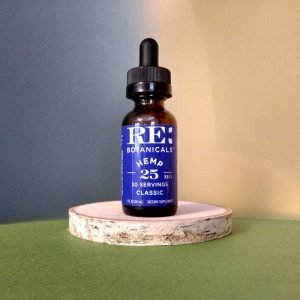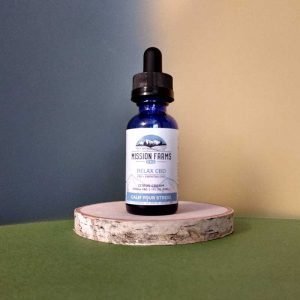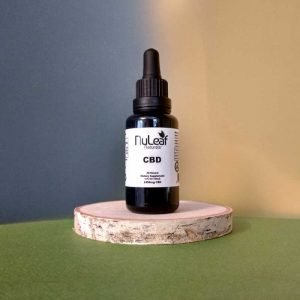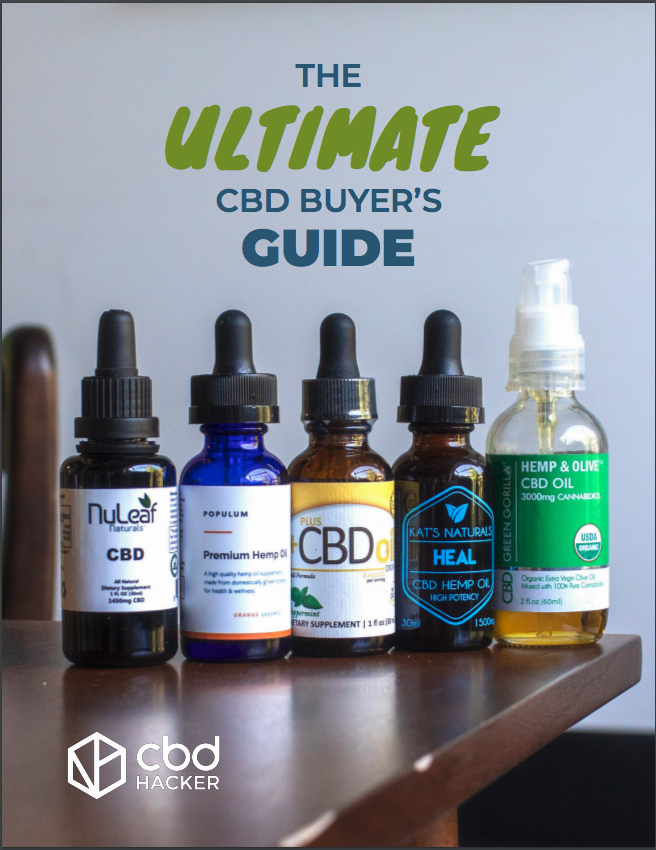Depression is a complicated illness. It can be caused by a reaction to a devastating life event, a consequence of another illness, or a genetic predisposition.
This individuality of depression makes it incredibly hard to treat. Even with over 20 pharmaceutical medications used to treat depression, many people still do not find relief.
It is this lack of clinically effective options that have led many people to try CBD oil as a natural treatment for their mental health conditions, including things like anxiety disorders and depression.
But what exactly is CBD oil, and can it really help those struggling with depression? We will help to answer these questions by looking at the existing research and speaking with Dr. Sherry Yafai, an expert in cannabis-based medicine.
About CBD for Depression
Claim
CBD can help to alleviate depression for some people. It may even work to replace pharmaceutical medications for depression.
Research Shows
So far, there haven’t been any human clinical trials on CBD for depression. Preclinical studies have found CBD to exhibit antidepressant qualities.
Just the Facts
CBD may be helpful for some people with depression, depending on the cause. More research is needed before any conclusions can be drawn.
What is Depression?
We’ve all felt down at one time or another; this is a normal reaction to the challenges of life. For some, however, a depressed mood is something that won’t go away.
The primary thing that separates depression as an illness from normal mood fluctuations is the period of time for which the symptoms have been present.
If you’ve experienced multiple of the following depression symptoms for two or more weeks in a row, you may be struggling with depression:
- General fatigue or a lack of energy
- Reduced excitement for things that used to interest you
- Sleep troubles, whether insomnia or sleeping too much
- Changes in appetite (eating too much or too little)
- Trouble with memory or making decisions
- General apathy towards people or events
- Loss of pleasure
- Restlessness
- Feelings of guilt, hopelessness, or worthlessness
- Recurrent thoughts of suicide
What Causes Depression?
Depression is a complicated illness that doctors and researchers do not fully understand. The cause can vary from one person to another, and there are often multiple factors that result in depression.
There are many factors that contribute to depression, including:
- Biology: Some people are genetically more susceptible to depression than others. Additionally, changes to your biology, such as menopause, can cause changes in neurotransmitter or hormone levels which can result in depression.
- Environment: Your environment can lead to depression in numerous ways. For example, cold and cloudy winter weather can result in a vitamin D deficiency. This may play a role in seasonal depressive disorder, a type of depression.
- Illness: Certain illnesses can play a role in depression. This may be a direct cause, such as neurological changes caused by Lyme disease, or as a consequence of a disease. For example, chronic pain may lead to a reduced quality of life that results in depression.
- Life Events: The passing of a loved one, the loss of a career, or an injury can trigger extended depression for some.
These are just a few examples of factors that can come together to cause depression. They demonstrate why depression is both individual and complicated.
How Is Depression Treated?
Depression is usually treated with a combination of prescription medications (typically SSRIs, selective-serotonin reuptake inhibitors), psychotherapy, and support (such as educating family members).
The trouble is that not everyone responds to traditional treatments. In a 2108 study that examined the effectiveness of antidepressant drugs in human clinical trials, it was found that roughly 60 percent of patients responded following two months of treatment with close to a 50 percent reduction in symptoms.
Unfortunately, that means that 40 percent of patients did not respond as well. Additionally, about 80 percent of people stop using antidepressants within one month, likely due to their side effects, which can include an increased risk of suicide.
This has left many people living much of their lives depressed, not knowing where to turn or if they will ever find relief. Some of these patients try CBD oil, THC, or other cannabis products in the hopes of finding relief.
What Is CBD Oil?
CBD, or cannabidiol, is a compound found in the Cannabis sativa plant that belongs to a class of chemicals called cannabinoids. Unlike its sister cannabinoid THC (tetrahydrocannabinol), CBD does not get you “high.”
CBD oil derived from hemp (cannabis with 0.3% or less THC) is now legal for consumers in all 50 states, with studies being published every month that examine how it may benefit our health and wellbeing. THC, on the other hand, is extracted from the marijuana plant (cannabis with greater than 0.3% THC), and is not yet legal throughout the United States.
Much of the studies on CBD and other cannabis-derived compounds have been preliminary, meaning that there haven’t been many human clinical trials. This leaves doctors and patients alike to experiment to determine if these compounds can help those in need.
According to a 2018 study, the top three reasons that people report using CBD are pain, anxiety, and depression. Many people try out CBD products thanks to anecdotal reports rather than published research, leaving savvy consumers to question what science has to say when it comes to CBD and depression.

Research Highlights
2018: Anti-Depressant Like Effects of Cannabidiol in Mice
In a 2018 study published in Molecular Neurobiology, researchers set out to determine the antidepressant potential of a single dose of CBD in mice using a forced swim test to measure its effects.
They found that just one dose of CBD had antidepressant-like effects in mice, and noted that this effect depended on the dose. They concluded that CBD may prove to be a promising fast-acting antidepressant drug.
These effects were credited to changes in the synaptic plasticity related to an increase in BDNF (brain-derived neurotrophic factor) in the prefrontal cortex. Decreased levels of BDNF are associated with depression and stress.
2016: A Review of CBD’s Potential for Motivational Disorders
In this review of preclinical and clinical studies, researchers examined the potential of CBD in motivational disorders like depression, anxiety, and addiction.
They noted that CBD has an ability to interact with multiple receptor targets that might play a role in psychiatric disorders. They concluded that the research thus far suggests that CBD may be helpful as a treatment for these disorders, although further research is needed.
When it comes to depression specifically, it is the way that CBD appears to interact with neurotransmitter receptors in the brain as well as its ability to stimulate the growth of new neurons (brain cells) that may explain its antidepressant effects.
2016: CBD as an Antidepressant in Mice
In a 2016 study published in the Neuropharmacology, researchers set out to examine the antidepressant potential and mechanism of action of CBD in a mouse model of depression.
The researchers found fast-acting and long-lasting antidepressant-like effects that appear to be related to CBD’s impact on neurotransmitters. Specifically, CBD enhanced both glutamate and serotonin signaling.
2011: Cannabinoids for Mood Disorders
The relationship between the endocannabinoid system and mood disorders was the focus of this review, which also looked at studies exploring the efficacy of cannabinoid-based treatments.
Endocannabinoid abnormalities are associated with depression and other mood issues. But clinical trials on using cannabinoids to treat depression have been limited. The researchers noted, however, that the existing literature had offered promising results, and called for further study of CBD for depression.
Does CBD Help with Depression?
“I found myself riddled with anxiety that was so intense that I was bedridden. Over time, the anxiety paved the way for depression.”
Like many, Adam from New York was experiencing both anxiety and depression, and he was struggling to find an effective way to overcome the difficult combination.
“I had often used marijuana recreationally, but had never tried CBD for my anxiety. I decided to try taking CBD daily, once in the morning and once at night. The anxiety became manageable and I was able to get out of bed. I gained my life back, and with it, my depression faded away.”
Adam’s story elucidates how the use of CBD may relieve depression symptoms through helping with another condition: anxiety. There have been many studies and anecdotal reports that support the use of CBD as an anxiolytic (an anti-anxiety compound). Because chronic stress can lead to depression, CBD could help with the depression that comes from anxiety conditions.

We Asked an Expert
Dr. Sherry Yafai is a physician trained in cannabis-based medicine who has been counseling patients and educating medical professionals through her work at The Releaf Institute in Southern California.
She explains that cannabis-based medicines, whether CBD, THC, or a cannabis plant extract containing multiple phytonutrients, may help some people with depression, but not others.
“Depression is different in each individual. You must first ask yourself, why do you have depression?”
“I had one patient who was in chronic pain who was taking lots of painkillers…Because cannabis could help alleviate pain and allow her to do more, allowed her to get out and move, changing her size and shape, it helped her feel better. But this isn’t clinical depression.”
“Cancer patients who are facing a life-threatening illness and side effects from chemo can become depressed. Cannabis can help with chemo side effects and appetite, allowing them to eat foods that they enjoy. This can help depression lift.”
Dr. Yafai points out that the impact of CBD and cannabis on depression is not black and white. She explains that, “the question is whether or not CBD or other cannabis-based products are the right avenue or not. Is CBD a good way to target the cause of the depression?”
These stories help us to understand the potential of cannabis and CBD to help some people with depression. However, these examples do not include those who have a genetic or hormonal basis for depression.
There have not been human studies that support the use of CBD in these scenarios, at least not yet. We must wait to see in what scenarios CBD can alleviate depression, and in what ones it cannot.
How to Take CBD Oil for Depression
Before you begin using CBD oil for depression, there are multiple factors that you want to consider.
CBD, THC, or Both?
If you are all right with trace amounts of THC, a full spectrum CBD oil can offer the additional benefits offered by the other compounds in cannabis, a relationship known as the entourage effect.
Alternatively, if you live in a state with legalized recreational or medical marijuana, you may want to try a product that contains both CBD and THC. To determine the right ratio, it is a good idea to talk to a medical professional.
If your primary care physician isn’t trained in cannabis or CBD treatment for medical conditions, visit the Society of Cannabis Clinicians to find a knowledgeable healthcare professional near you.
Dose
When it comes to dose, every person is different. Genetics, gender, age, and weight are just a few elements that influence how much CBD would be the appropriate dosage. Additionally, the root cause of your depression can also impact the ideal dosage.
When it comes to finding the right dose for CBD oil, or any cannabis product for that matter, Dr. Yafai recommends for patients to follow one rule: “Start low and go slow.”
What this means is that you want to start with a very small CBD dosage and slowly increase this dose until you find what works for you.
Type of Product
There are many ways to consume CBD and other cannabis compounds. Two of the most popular ways to consume CBD are tinctures and capsules.
Tinctures are dropper bottles of a CBD-rich liquid that you can leave under your tongue and then swallow. CBD tinctures are popular because they allow a greater percentage of the CBD to be absorbed than when you simply take CBD orally.
Capsules are another good option because they are familiar, easy to take, and allow for straightforward dosing.
Quality
If you decide to take CBD hemp oil for depression, be sure to find a high-quality product. Due to a lack of regulation, many CBD products have been found to not contain what they claim on the label. This can result in things like insufficient efficacy, the presence of high levels of THC, or contaminants that could be dangerous for your health.
To find a high-quality product, either go to a dispensary if marijuana is legal in your state, or do your homework before purchasing a CBD hemp oil. Ask for a Certificate of Analysis (COA) for the specific product and batch to ensure that you’re getting what’s on the label.
Final Thoughts
CBD oil may turn out to be an effective treatment for some people with depression. As it stands now, there have been no human clinical trials examining CBD’s antidepressant potential, but animal studies have been promising and there have been plenty of people that have experienced depression improvement with CBD first-hand.
You should always talk to your doctor about using CBD to address any health condition. When you’re dealing with depression, this may be especially important.
That’s in part because there are other health conditions with symptoms that can easily be mistaken for depression. If your mood is the result of a thyroid problem, for example, you will need to approach your treatment differently.
Another consideration is that CBD could interact with other medications. That’s because it’s metabolized by a group of liver enzymes that is also responsible for breaking down many pharmaceuticals, including some common antidepressants.
The end result is that CBD might make your other medications less effective, or it could intensify unwanted side effects. And if that’s the case, your physician may choose to increase or decrease your dosages of other medications to counteract these effects.
If you decide to try CBD for yourself, be sure to find a quality product. Then, start low and go slow when it comes to your CBD dose.
Editor's Choice: CBD Oil Drops
Ready to try adding CBD oil to your life? You’ll find a few of our team’s favorite products below.
And if you’re looking for more great suggestions, check out our ranking of the Best CBD Oil Drops for 2019.
RE Botanicals, Hemp 25 Classic Tincture
Founded by a veteran of the hemp industry and an advocate for regenerative agricultural practices, RE Botanicals is one of the first CBD brands to qualify for organic certification from the USDA — and they beat many of their competitors on pricing!
Save 10% with code: cbdhacker.
Mission Farms, Relax CBD Oil
Mission Farms formulates their CBD products with essential oils and terpenes to address different concerns. And with formulas designed to aid in relaxation, sleep, and pain relief, they have something for just about everyone!
Save 20% with code: cbdhacker.
NuLeaf Naturals, Full Spectrum CBD Oil
NuLeaf Naturals offers Colorado-grown, full spectrum CBD oil that offer among the most trace cannabinoids per drop of any product we’ve tested.
Save 20% with code: cbdhacker.










